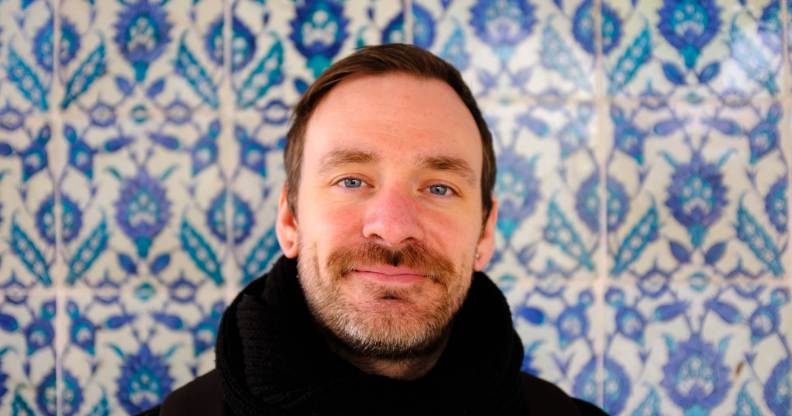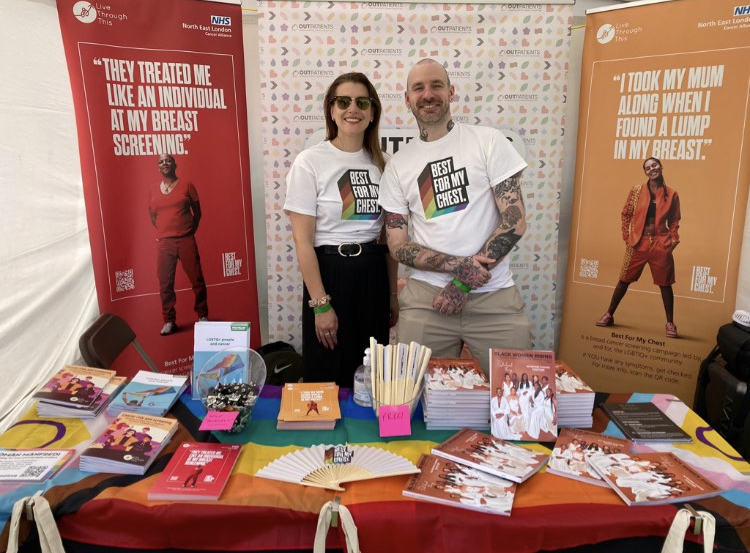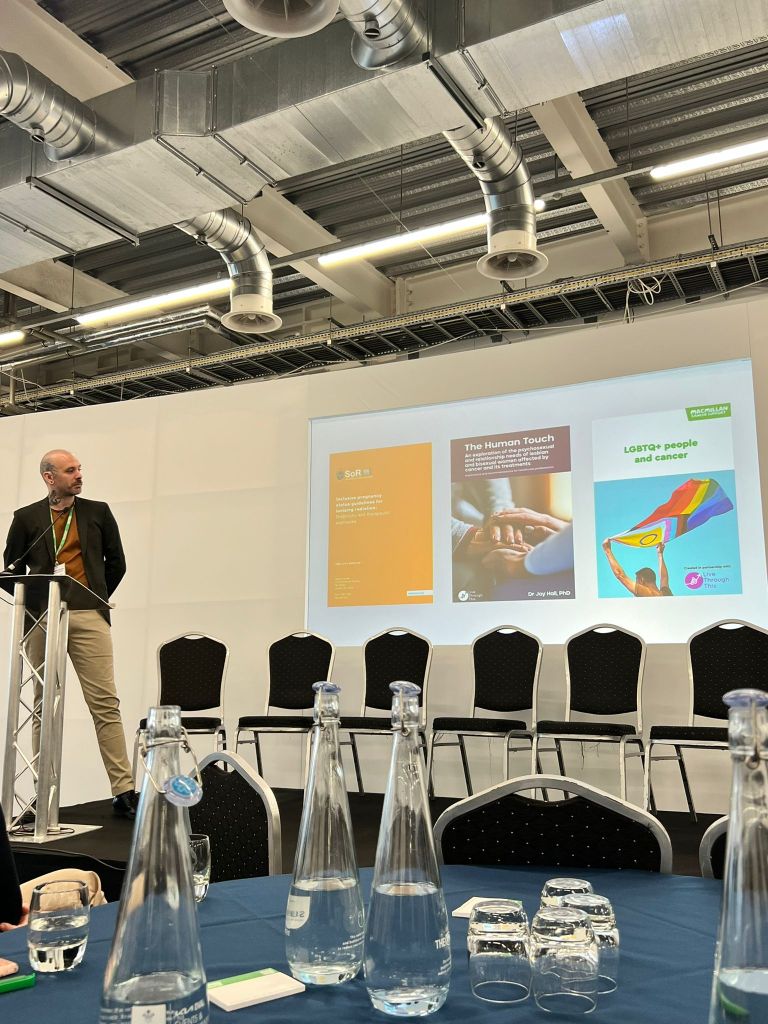Navigating blood cancer as a genderqueer person: ‘I felt really on my own’

Stewart O’Callaghan’s world was turned upside down when they were diagnosed with a rare form of blood cancer aged 29. (Supplied)
Stewart O’Callaghan still remembers vividly the moment they were told they had blood cancer.
“My head was kind of like a blank space if I’m honest. I was so in shock about it,” they tell PinkNews.
Stewart was diagnosed with chronic myeloid leukaemia (CML). It’s a slow-growing form of blood cancer which causes problems with white blood cells, leading to a weakened immune system and fatigue. It is a rare form of cancer which affects just 1.3 out of every 100,000 people, and there are just 760 new diagnoses each year in the UK.
The median age for a CML diagnosis is between 60 and 65, but Stewart was just 29 years old when they found out. In an instant, their life was turned upside down.
At the time, Stewart was a tattoo artist living and working in Germany. They first noticed something was wrong when they failed to recover from a bout of food poisoning. Stewart went to their doctor and had blood tests done, and they received a “very nervous” phone call that same day telling them to go to A&E.

Getting the diagnosis rocked Stewart’s world. They tried to carry on as normal, to pretend that nothing was wrong, but they couldn’t keep up the facade. They immediately went back to work, but their boss sent them home once they found out what had happened.
“He was like, ‘I think you really need to go home and let this sink in a bit.’”
Blood cancer care ‘incredibly gendered’
Before long, Stewart returned to England, where they had to undergo all the same tests again to confirm their blood cancer diagnosis. It wasn’t until they started treatment that they realised just how lonely a cancer diagnosis can be – especially when you’re queer. They quickly discovered that the support services, quite simply, didn’t exist for people like them.
“I sometimes would have a good nurse who would say, we’ll try to match you with someone who’s a similar age and has a similar cancer, and that never happened. So I felt really on my own trying to figure stuff out for a long time.”
Stewart also discovered that there was a presumption in cancer care that they would have family or a partner who could help care for them – but as a single genderqueer person, they had nobody to fall back on.
“It was very much just trying to figure it out by myself.”

They also had to learn to contend with the “incredibly gendered” space that is cancer care. At one point, they tried to join an art group for people with cancer but discovered that it was for women only.
Stewart also discovered quickly that nobody was able to answer their largely queer-specific questions.
“It was always, ‘We’re not sure.’ So for example, can I take this medication with PrEP? ‘We don’t know.’ It’s these aspects where it’s quite tough to live safely with the disease if you can’t have these questions answered.”
It was even difficult navigating therapy. When they went to see counsellors who worked with people with cancer, they were met with “preconceived notions” that made them feel like “a square peg in a round hole”.
In the background, Stewart’s life was crumbling around them. They were forced to give up work due to their health issues and, without a support network, they eventually ended up homeless. In one particularly dark moment, they were forced to sell their car to make ends meet. They ended up staying in a hostel.
Stewart’s LGBTQ+ cancer charity is changing the game
When Stewart looks back on their experience, they say it wouldn’t have been as challenging if cancer care was better set up for LGBTQ+ people. They want to see a fairer system where staff understand that not everybody is cisgender or heterosexual, and not everyone has a long-term partner who can pick up the slack when health issues arise.

That’s what inspired Stewart to set up OUTpatients, a charity dedicated to helping LGBTQ+ people living with cancer. The charity was, Stewart says, born out of desperation. They wanted to find others going through similar experiences to them, and they wanted to make the road smoother so others wouldn’t have to face what they did.
It all started with a coffee morning for LGBTQ+ people with cancer, and it quickly blossomed into a movement all of its own.
“I wanted to build something that could work for people who identify on any part of the LGBT spectrum and have any experience of cancer so they wouldn’t be left on the outside like I was,” they explain.
“Cancer absolutely shakes your life up from the root to the tip and that absolutely involves the people around you, your identity, your support structures, all parts of it. So I think it’s absolutely valid to find comfort in your community if that feels right for you.
“If it does feel right for you, get in touch with the charity and we’ll see if we can help.”
How did this story make you feel?

